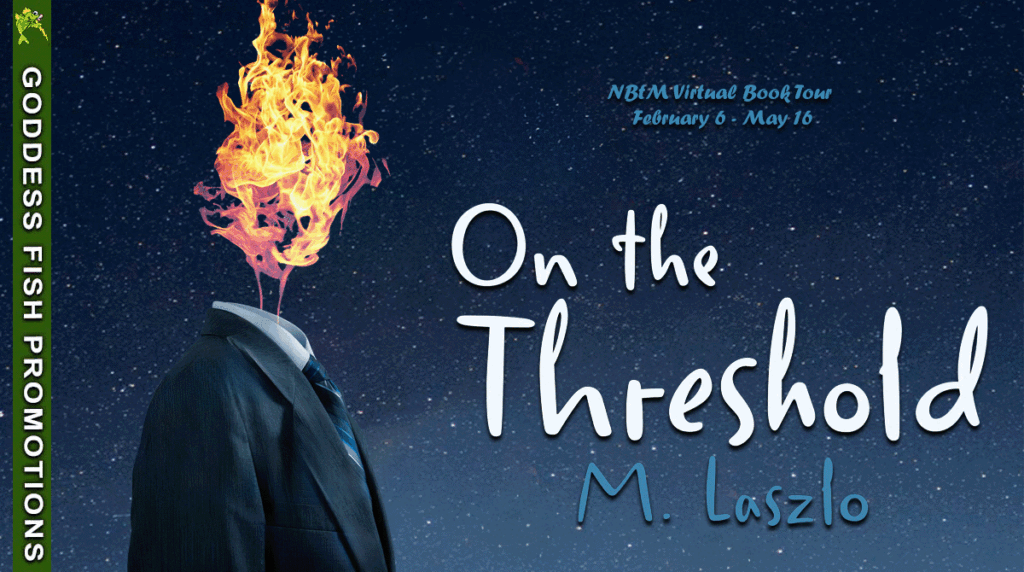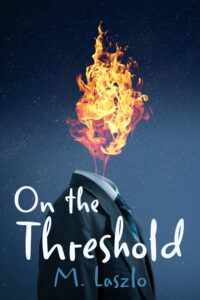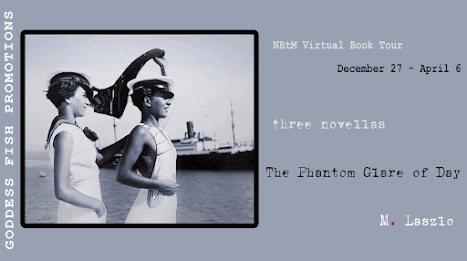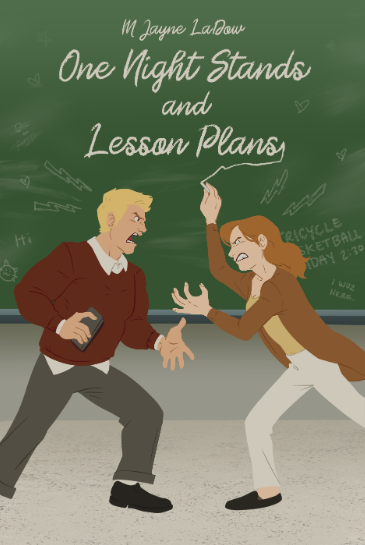Anastasia’s Midnight Song by M. Laszlo
Publisher: Alkira Publishing
Genre: Fantasy, Historical Fiction
Rated: 4 stars
Review by RoseSt Petersburg, 1917
French Huguenot Anastasia believes working in one of Sinai’s mirror factories will allow her to trap the imaginary Arctic Fox which lives in her womb.
Meanwhile, Jack escapes from London and travels to Sinai to avoid being conscripted to fight in the trenches. His strange imaginings do little to alleviate his feelings of cowardice.
When they meet, Jack is seized with a fierce desire to possess her, and nothing can diminish his obsessive urge to be noticed by her, despite her obvious disgust of his crude advances.
Their journeys twist together like a fugue, filled with fantastical delays, as they both fail to accomplish what they set out to do. On a quest for moral truths and unable to escape the consequences of their false beliefs, they relentlessly approach the acute phase of their schizophrenia.
Anastasia’s Midnight Song is a revelatory, hallucinatory account of the growing insanity of two young people who happen to be in the same place at the same time.
M. Laszlo has penned an epic journey into madness doubled, and the intersection of Anastasia and Jack and their issues leads the reader to join their travel. The book is beautifully written and immerses the reader into a surreal and nearly magical world.
The world created for this book goes beyond the physical setting of early 20th century St. Petersburg and introduces the reader into a world that is dreamlike… into the worlds that Jack and Anastasia reside in as their mental problems grow more pronounced. At times, for the reader, it’s not clear what is reality and what is inside their minds. I feel this is the writer’s intent…to draw us into their own thoughts and feelings. To let us feel and see, just for a short time, what it’s like.
This is a book that, while it was sometimes hard to follow it has also proven to be hard to forget. I am looking forward to rereading it, because I think there are even more depths to discover. Thank you, Mr. Laszlo, for providing a deeply satisfying and, at the same time, a deeply unsettling book.


 Obsessed with learning the origins of the cosmos, the actual meaning of life, and the true purpose of civilization, a fine Scotsman named Fingal T. Smyth dedicates himself to the study of Plato’s most extraordinary ideas. Convinced of Plato’s belief that humankind possesses any and all innate knowledge deep within the collective unconscious mind, Fingal soon conducts a series of bold, pioneering occult-science experiments by which to resolve the riddle of the universe once and for all. However, Fingal forgets how violent and perilous the animal impulses that reside in the deepest recesses of the unconscious mind. And when Fingal unleashes a mysterious avatar of his innate knowledge, the entity appears as a burning man and immediately seeks to manipulate innocent and unsuspecting people everywhere into immolating themselves. Now, with little hope of returning the fiery figure into his being, Fingal must capture his nemesis before it destroys the world.
Obsessed with learning the origins of the cosmos, the actual meaning of life, and the true purpose of civilization, a fine Scotsman named Fingal T. Smyth dedicates himself to the study of Plato’s most extraordinary ideas. Convinced of Plato’s belief that humankind possesses any and all innate knowledge deep within the collective unconscious mind, Fingal soon conducts a series of bold, pioneering occult-science experiments by which to resolve the riddle of the universe once and for all. However, Fingal forgets how violent and perilous the animal impulses that reside in the deepest recesses of the unconscious mind. And when Fingal unleashes a mysterious avatar of his innate knowledge, the entity appears as a burning man and immediately seeks to manipulate innocent and unsuspecting people everywhere into immolating themselves. Now, with little hope of returning the fiery figure into his being, Fingal must capture his nemesis before it destroys the world.

 Obsessed with learning the origins of the cosmos, the actual meaning of life, and the true purpose of civilization, a fine Scotsman named Fingal T. Smyth dedicates himself to the study of Plato’s most extraordinary ideas. Convinced of Plato’s belief that humankind possesses any and all innate knowledge deep within the collective unconscious mind, Fingal soon conducts a series of bold, pioneering occult-science experiments by which to resolve the riddle of the universe once and for all. However, Fingal forgets how violent and perilous the animal impulses that reside in the deepest recesses of the unconscious mind. And when Fingal unleashes a mysterious avatar of his innate knowledge, the entity appears as a burning man and immediately seeks to manipulate innocent and unsuspecting people everywhere into immolating themselves. Now, with little hope of returning the fiery figure into his being, Fingal must capture his nemesis before it destroys the world.
Obsessed with learning the origins of the cosmos, the actual meaning of life, and the true purpose of civilization, a fine Scotsman named Fingal T. Smyth dedicates himself to the study of Plato’s most extraordinary ideas. Convinced of Plato’s belief that humankind possesses any and all innate knowledge deep within the collective unconscious mind, Fingal soon conducts a series of bold, pioneering occult-science experiments by which to resolve the riddle of the universe once and for all. However, Fingal forgets how violent and perilous the animal impulses that reside in the deepest recesses of the unconscious mind. And when Fingal unleashes a mysterious avatar of his innate knowledge, the entity appears as a burning man and immediately seeks to manipulate innocent and unsuspecting people everywhere into immolating themselves. Now, with little hope of returning the fiery figure into his being, Fingal must capture his nemesis before it destroys the world.

 In this trio of novellas, three game young ladies enter into dangerous liaisons that test each one’s limits and force them to confront the most heartrending issues facing society in the early twentieth century. The Phantom Glare of Day tells of Sophie, a young lady who has lived a sheltered life and consequently has no idea how cruel public-school bullying can be. When she meets Jarvis, a young man obsessed with avenging all those students who delight in his daily debasement, she resolves to intervene before tragedy unfolds. Mouvements Perpétuels tells of Cäcilia, a young lady shunned by her birth father. She longs for the approval of an older man, so when her ice-skating instructor attempts to take advantage of her, she cannot resist. Not a month later, she realizes that she is pregnant and must decide whether or not to get an abortion. Passion Bearer tells of Manon, a young lady who falls in love with a beautiful actress after taking a post as a script girl for a film company—and is subsequently confronted with the pettiest kinds of homophobia.
In this trio of novellas, three game young ladies enter into dangerous liaisons that test each one’s limits and force them to confront the most heartrending issues facing society in the early twentieth century. The Phantom Glare of Day tells of Sophie, a young lady who has lived a sheltered life and consequently has no idea how cruel public-school bullying can be. When she meets Jarvis, a young man obsessed with avenging all those students who delight in his daily debasement, she resolves to intervene before tragedy unfolds. Mouvements Perpétuels tells of Cäcilia, a young lady shunned by her birth father. She longs for the approval of an older man, so when her ice-skating instructor attempts to take advantage of her, she cannot resist. Not a month later, she realizes that she is pregnant and must decide whether or not to get an abortion. Passion Bearer tells of Manon, a young lady who falls in love with a beautiful actress after taking a post as a script girl for a film company—and is subsequently confronted with the pettiest kinds of homophobia. M. Laszlo is the pseudonym of a reclusive author living in Bath, Ohio. According to rumor, he based the pen name on the name of the Paul Henreid character in Casablanca, Victor Laszlo.
M. Laszlo is the pseudonym of a reclusive author living in Bath, Ohio. According to rumor, he based the pen name on the name of the Paul Henreid character in Casablanca, Victor Laszlo.























